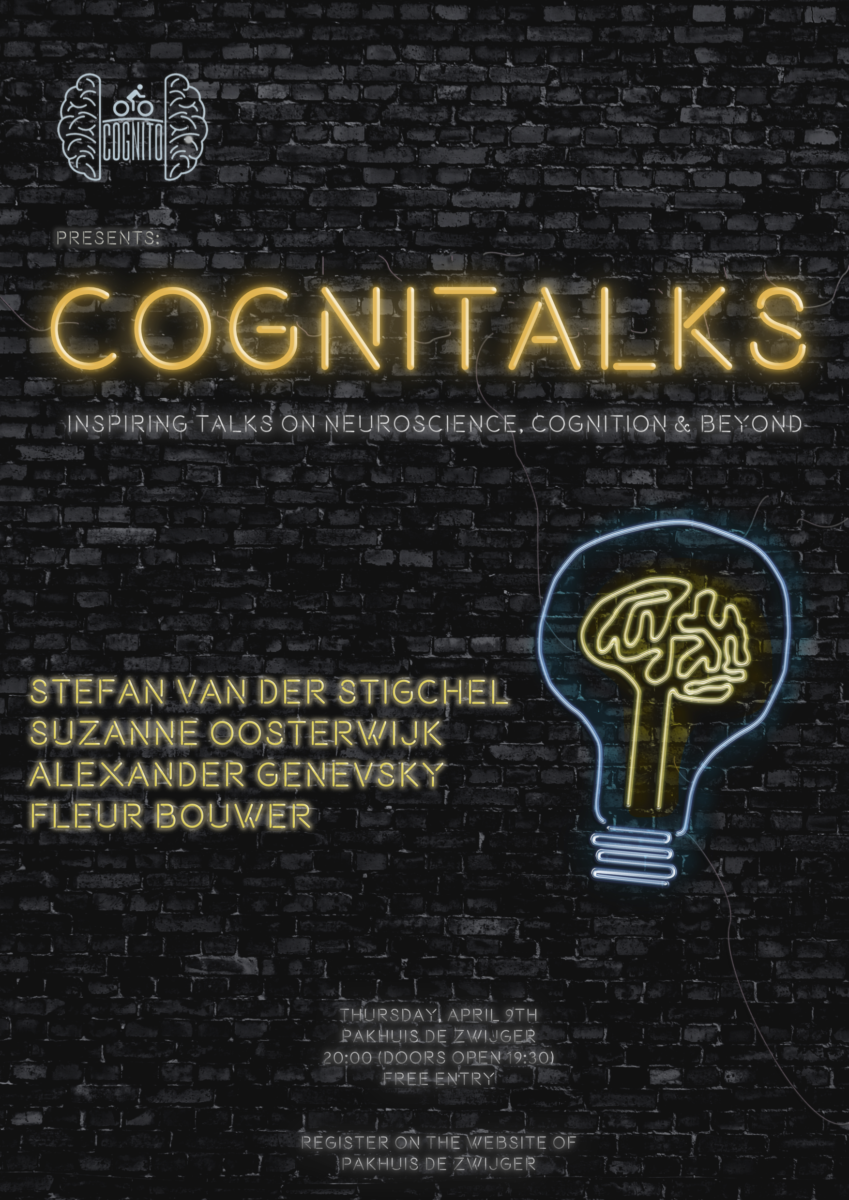Millions of euros of public funding go into exploring the great frontier of cognition, yet most scientists never translate their research to the society that has made their work possible. Cognitalks is built on the notion that scientists must do better in communicating their groundbreaking research to society. For this reason, once a year we invite some of the most exciting and inspiring cognitive (neuro)scientists to share their latest research with the general public in bite sized 20-minute presentations.
This year we have four great speakers from the University of Amsterdam, the Erasmus University of Rotterdam, and the University of Utrecht covering topics from morbid curiosity to decision making in neuroscience. After the talks are over, you will also have the chance to unwind and meet the speakers for a drink in an informal and relaxed setting.
The program will start at 20:00 and the doors open at 19:30.
Last year’s edition was a popular event, so rather register early if you want to get a spot.




Suzanne Oosterwijk
In day-to-day life, people often seek out images, videos, and stories that detail death, violence, or harm. In this talk I discuss recent research that investigates this phenomenon. I show that people are particularly prone to explore negative social information, and that this behavior is influenced by the social context. Moreover, I find that brain regions associated with value computation and reward, are involved when people deliberately expose themselves to intensely negative images. These findings suggest that “morbid curiosity” might not be that different from regular curiosity, and generate novel predictions about the value of seeking out negative content.
Stefan van der Stigchel
We are in the midst of an attention crisis—caused in large part by our smartphones. There’s a constant stream of information that we are powerless to withstand because it shows up in our notifications. More and more of us are finding it harder and harder to concentrate. In this talk, attention expert and cognitive psychologist Stefan Van der Stigchel explains how concentration works and offers advice on how to stay focused in a world of beeping smartphones, channel surfing, live-tweeting, pop-up ads, and other distractions.
Fleur Bouwer
Music is pervasive amongst humans. We listen to music to celebrate and to mourn, together with our friends, or in solitude, just to enjoy music by ourselves. But how can something like a simple tune make us happy and make us cry? How does the brain make music out of the sound signal that reaches our ears? And does it do us any good?
Alexander Genevsky
The most consequential decisions in public policy and business often rely on forecasts of population-level behavior. However, little is known about how individual decision processes scale to impact aggregate-level outcomes. In this talk, I present findings suggesting that discrete components of individuals’ neural activity can effectively forecast aggregate behavior, in some cases beyond traditional behavioral measures. In addition to demonstrating the plausibility of neuroforecasting, these findings raise the intriguing possibility that not all neural processes that predict individual choice scale to forecast aggregate choice to the same degree.




